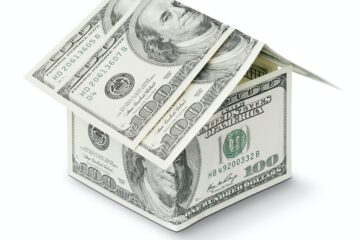Buying a house is one of the biggest financial decisions that you will make in your entire life. And because of the gravity of this decision, you should not take it lightly. Therefore, here are the things that you should consider when asking yourself, “Am I ready to buy a house?”
Am I Ready to Buy a House Checklist
- You need to be able to commit to living in that house for the next 5 years AT A MINIMUM.
There are a lot of moving pieces when you buy a house and there is a lot of money that will leave your hands. From inspections, appraisals, repairs, deeds, taxes, moving costs, etc. You don’t want to pay these (even if they are rolled into your closing costs) very often.
When you buy a house there is a lot of stability that comes with it. Make sure that you can commit to being in the same place for at least the next 5 years.
- Make sure that you can grow into the house.
None of us know what the future holds. We don’t know if we will get married, have children, what our career path will look like, etc. But when you are looking to buy your first home, make sure that you have thought about those things.
If you are married and you and your spouse want to start a really big family with five or six kids soon, don’t buy a 900 square-foot two-bedroom bungalow.
If you have kids that are getting ready to graduate high school or college and you will soon be an empty nester, don’t buy the big 5,000 square-foot, 5 bedroom, 5 bathroom house.
Do your best to buy a house that you can grow into over the next few years. You don’t want to buy a house that fits your needs now, but won’t in the next couple years.
- Do your best to anticipate your career direction.
Just like with buying a house that you can grow into, you will never be able to fully anticipate your career. However, you can give it your best shot.
If you know that your job will likely be downsized in the next couple years and you will have to move to another city, you should probably avoid buying a house.
Also, it is important to know the financial trajectory of your career. Sure, none of us can tell the future, and people switch career fields all the time, but do your best to think several years ahead.
If you are in a career that you hate and you don’t think that you can make it much longer in that field, you probably shouldn’t buy a house until you have a better idea of what your work-life will look like going forward. You don’t have to have it 100% figured out or anything, but have an idea of what it looks like.
Also, understand your income track. If you have a career that will have steady (but small) raises each year or if you are in a career path that will have much bigger jumps periodically. Try to think through these scenarios before you buy your first house.
Am I Ready to Buy a House Financial Benchmarks You Need
MAX Monthly Mortgage Payment
One of the first things that you really need to know when asking yourself, “Am I ready to buy a house?” is how big your mortgage payment should be. This is a really big sticking point for most people. My guidance for buying a home is to not have a mortgage payment more than 25% of your monthly gross (before taxes) income.
This is the first and (possibly) most important calculation that you need to know.
Banks and mortgage companies will often approve you for much more than this amount. But in order to stay financially fit, you need to make sure that you do your best to not go crazy and get a house that is too expensive for where you are now in your career and income.
Yes your income will hopefully (and probably) go up over time, but you have to be able to make the payment comfortably now. You don’t want to purchase a house with the idea that your income will go up in a few years and then it doesn’t (or it takes a lot longer than you originally thought). You want to make sure that you can be comfortable with the house payment now.
So when asking yourself, “How much house can I afford?”, this is step one.
Here is how you calculate how much of a mortgage payment you can afford:
Annual Income / 12 Months = Monthly Income
Monthly Income * 0.25 = Maximum Mortgage Payment
Also, these calculations are based on your GROSS income, which means your income before taxes, retirement contributions, insurance, etc.
Here is a chart to give you an idea based on some various incomes, of the maximum mortgage payment you should take on:
| Annual Income | Monthly Income | Max Mortgage Payment |
| $40,000 | $3,333 | $833 |
| $60,000 | $5,000 | $1250 |
| $80,000 | $6,667 | $1,667 |
| $100,000 | $8,333 | $2,083 |
| $120,000 | $10,000 | $2,500 |
| $140,000 | $11,667 | $2,917 |
| $160,000 | $13,333 | $3,333 |
| $180,000 | $15,000 | $3,750 |
| $200,000 | $16,667 | $4,167 |
| $220,000 | $18,333 | $4,583 |
And it is also important to remember that this is your TOTAL maximum mortgage payment. Your payment will include principal, interest, taxes, insurance, and HOA dues (if you have an HOA).
MAX Total Debt Payments
If the last one didn’t get you, this one might. When asking yourself, “Am I ready to buy a house?”, you really need to understand your debt load. You should not have more than 35% of your total gross income going to debt payments of any kind. The reason that I have this guideline is not to punish you, but to make sure that you are not spending too much money in interest and so that you can build the life you want. 🙂
This one can be difficult for some people, especially if you have a lot of student loans. But this one is really important regardless of whether you want to buy a house or not.
Having a manageable debt load (or no debt at all) is a really important thing for us to be responsible adults.
Yes, you can easily make the argument that there is a difference between good debt and bad debt. But you need to be able to make sure that your overall debt load does not become too cumbersome.
This is why I put the guideline of not having more than 35% of your total income going toward your debt payments.
Your debt payments will include:
- Mortgages
- Car loans
- Student loans
- Credit card payments (if you don’t have them paid off every month)
- Personal loans
- Etc.
The monthly payments for ALL of these debts should not add up to more than 35% of your total monthly gross income.
If they do, then stop everything and start aggressively paying them down. You don’t have to pay them all off completely if you don’t want to. But at least pay them down so you can fit within this guideline.
Here’s a couple examples of someone’s debt payments and if they fit within the guideline that I have set.
Michael makes $85,000 per year (gross income). He has the following debt payments each month:
- Car loan of $450/month
- Credit card payment of $115/month
- Student loans of $375/month
He is looking to buy his first house and finds a house where the payment would be $1,500/month.
His total debt payments are $450 + $115 + $375 +$1,500 = $2,440
His monthly gross income is $85,000 / 12 months = $7,083.
His total debt service ratio is $2,440 / $7,083 = 34.4%
Based on my guidelines he can afford this house (but just barely)
Oscar makes $60,000 per year. He has the following debt payments each month:
- Car loan: $350/month
- Student Loans of $250/month
- Credit card payment of $90/month
He is also looking to buy his first house and finds one where the payment would be $1,200/month.
His total debt payments are $350 + $250 + $90 + $1,200 = $1,890.
His Monthly gross income is $60,000 / 12 months = $5,000.
His total debt service ratio is $1,890 / $5,000 = 37.8%.
Based on my guidelines, he cannot afford this house. He either needs to pay off his car, pay off his student loans, pay off his credit card, find a cheaper house, or put more money down on this house to lower the payment.
Here is a chart to give you an idea of the maximum amount of debt payments that you should have when you purchase a house:
| Annual Income | Monthly Income | Max Mortgage Payment | Max Total Debt Payments |
| $40,000 | $3,333 | $833 | $1,167 |
| $60,000 | $5,000 | $1250 | $1,750 |
| $80,000 | $6,667 | $1,667 | $2,333 |
| $100,000 | $8,333 | $2,083 | $2,917 |
| $120,000 | $10,000 | $2,500 | $3,500 |
| $140,000 | $11,667 | $2,917 | $4,083 |
| $160,000 | $13,333 | $3,333 | $4,667 |
| $180,000 | $15,000 | $3,750 | $5,250 |
| $200,000 | $16,667 | $4,167 | $5,833 |
| $220,000 | $18,333 | $4,583 | $6,416 |
Minimum of a 3-Month Emergency Fund
Financial advisors disagree on a whole bunch of issues. However, the one thing that we all pretty much unanimously agree on is the importance of an emergency fund.
When you buy a house, it is REALLY REALLY important that you have money in your emergency fund. There is a really high likelihood that you will have things that need to be replaced, fixed, or repaired upon moving into your house.
So in order to make sure that you don’t put those things on a credit card, make sure that you have at least three months of your expenses saved up in a liquid emergency fund.
Save for Miscellaneous Costs
You will have a bunch of weird and unexpected costs associated with buying a home.
You will have repairs, moving costs, utility deposits, extra food, extra inspections, etc. Make sure that you have the money to pay for all of these things. Yes, some of them can be rolled into your mortgage payment. Just make sure that you can pay for the rest of them and don’t have to put them on a credit card.
Final Thoughts
Buying a house is a really big deal. For most of us, it’s the biggest purchase that we will ever make in our lifetime. Just make sure that you go about it responsibly. You don’t want your house to become a nightmare.
You can do this!
I am here for you!
Until next time!



0 Comments